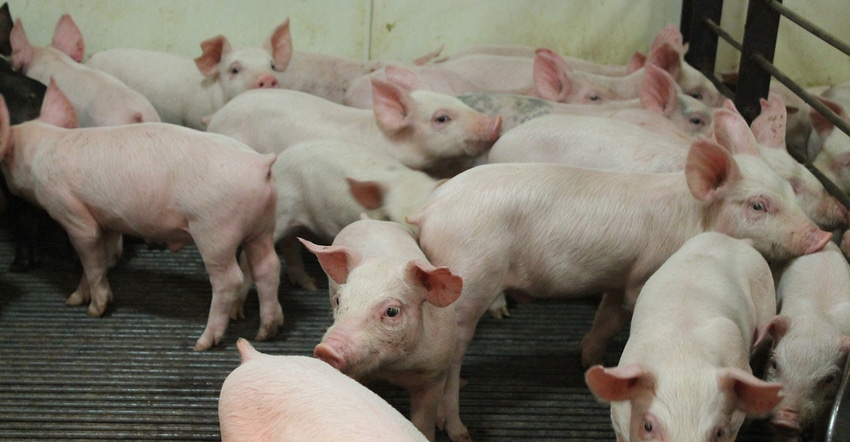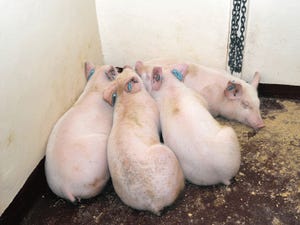Adding amino acids to low-protein diet aids in pig welfare
Pigs fed the supplemented diet did not differ in tail biting behavior or wounds from pigs on diets with higher protein levels.
November 16, 2023

Pigs fed a low-protein diet can show more damaging behaviors, but this can be counteracted by supplementation of essential amino acids to their diet, according to research from Wageningen University and Research recently published in Scientific Reports. The researchers say this outcome is important for both pig welfare and the environment.
Environmental enrichment lowers the risk of damaging behaviors in pigs. The provision of extra toys and chewing materials to pigs on a low-protein diet was therefore tested. Initially the extra enrichment reduced tail biting. After a few weeks, however, this effect vanished, even though the pigs were still clearly attracted to the enrichment materials offered.
Supplementation of essential amino acids
"This does not mean that environmental enrichment is not important for pigs, but shows that more is needed to prevent the detrimental effects of a low-protein diet on pig welfare," says researcher Ilaria Minussi.
Supplementation of extra essential amino acids to the low-protein diet was, however, effective on the long run. Pigs fed the supplemented diet did not differ in tail biting behavior or wounds from pigs on diets with higher protein levels. This shows that low-protein diets can be used for pigs without increasing the risk of damaging behaviors by means of amino acid supplementation.
Individual pigs may have different amino acid requirements, depending on their health, for instance. Future studies will focus on determining whether pigs can self-supplement extra amino acids when needed by changing their dietary choices.
Beneficial for the environment
Pig diets with low protein content are increasingly used to improve the sustainability of meat production. Such diets reduce, for instance, nitrogen excretion in the environment, which is a contemporary issue. However, previous research at WUR demonstrated that pigs fed such diets show more damaging behaviors towards their pen mates, such as ear biting and tail biting.
"So lowering the level of protein in pig diets has clear benefits for the environment, but this may come at the expense of pig welfare," says Minussi. "Finding a solution to prevent this effect is therefore important."
This research of Wageningen University and Research is part of a Public Private Partnership funded by the Dutch Ministry of Agriculture, Nature and Food, ForFarmers, De Heus and METEX Animal Nutrition.
You May Also Like



